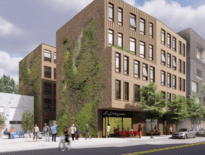
Stephen Medeiros
Realtors from across the state will unite to talk about important state legislative issues affecting homeowners and the real estate market at the Massachusetts Association of Realtors’ 36th annual Margaret C. Carlson Realtor Day on Beacon Hill on June 7. This year the strength of our collective involvement will be on display via remote platforms as we head into what we hope is the home stretch of the COVID-19 pandemic. Following opening remarks, Realtors will meet with their members of the state House of Representatives and Senate to provide key insights on the local housing market and how the issues affect each legislative district in Massachusetts.
Legislators have consistently remarked that Realtor Day on Beacon Hill is one of the most effective grassroots advocacy events in Massachusetts each year. Realtors are uniquely situated to relate the challenges they face as local business owners, as well as the challenges homeowners and first-time homebuyers face. Few trade associations can hold an event that attracts hundreds of members who are both knowledgeable on the issues and able to share real-life stories of how the issues affect residents statewide.
Lack of Housing Inventory
While (virtually) on Beacon Hill, our members will be advocating for a number of bills.
The legislature passed, and Gov. Charlie Baker signed, a new housing production law in January enabling cities and towns to adopt zoning best practices related to housing development by a simple majority vote, rather than the prior two-thirds supermajority. The law makes it easier for municipalities to rezone for denser, transit- or downtown-oriented housing development.
Now we must focus on implementing policies to promote housing construction at the local level. Our legislators can play a key role in supporting the implementation of these zoning changes in our communities. This is an opportunity for Realtors to thank their legislators and ask them to continue working to address our housing production crisis.
Realtors also recognize the significance of the federal Fair Housing Act and are steadfast in their commitment to upholding its tenets and their commitment to offering equal professional service to all. To facilitate that mission, MAR is backing H.333/S.204, a bill that would increase the number of fair housing education hours required for all real estate licensees in Massachusetts: four hours in pre-licensing education and two hours biannually for continuing education.
We’ll be talking to legislators about ways to help first-time homebuyers, including with H.2840/S.1834, which establishes tax-exempt ways to save for a down payment. First-time homebuyers face unprecedented challenges including record-high home prices and significant student loan debt. First-time homebuyer savings accounts will help expand access to the American dream of homeownership.
These accounts allow future homebuyers or their families to deposit up to $5,000 each year into a savings account and claim their deposit as an income tax deduction. Gains are tax-exempt and deductions are permitted for up to 15 years and $50,000. Incentivizing homeownership has many benefits, contributing to community responsibility, family security, well-being and civic, economic, business and employment stability. In addition, new homebuyers average $146,000 in related expenditures which stimulates local economies.
Realtors Oppose Transfer Taxes
Realtors will also be urging legislators to leave a few ideas and bills aside.
Additional transfer taxes have been floated before as a way to pay for needed climate change resiliency projects and important affordable housing investments. Increasing this sales tax on homes would exacerbate the longstanding housing affordability crisis in Massachusetts by increasing the price of homeownership, often by thousands of dollars. This raises the barrier to homeownership many families already face due to the high cost of housing in Massachusetts. Rentals are also impacted, as increased costs are passed along to tenants when new owners buy a property. Transfer taxes also undermine the basic tenet of fairness in tax policy by forcing both buyers and sellers, about 2.5 percent of the population per year, to be the sole direct funders of community-wide responsibilities.
MAR applauds communities working to identify revenue sources to create and preserve affordable housing and remains committed to working with them on this issue. One strategy is supporting the Community Preservation Act, or CPA, which allows residents of a municipality to raise additional revenue for affordable housing through a property tax surcharge enhanced by matching state funds.
Rent control has also recently reared its head, in the form of H.1440/S.889 and H.1378/S.886. MAR opposes rent control in all forms because it reduces the quality and quantity of available housing. It disincentivizes property owners and developers from investing in multifamily projects and properties – the type of housing that Massachusetts needs most. In addition, while it is designed to help those in need, it results in shrinking inventory and units in disrepair, which further harms low-income individuals.
With Realtor Day on Beacon Hill, Realtors have an important role to play in advocating for homeownership. From taxes to rent control to fair housing, the resulting legislation will have a long-tail impact on both the housing and banking industries.
Steve Medeiros is a broker associate with Keller Williams in Dartmouth and the 2021 president of the Massachusetts Association of Realtors




 |
| 

